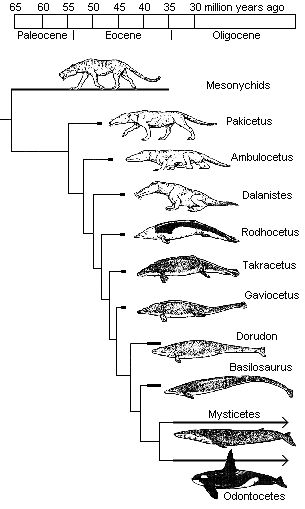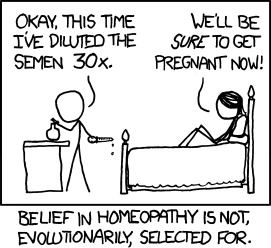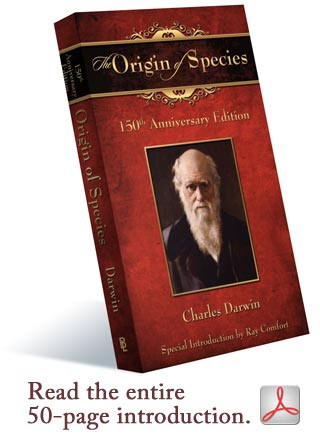Jerry Fodor and Massimo Piattelli-Palmarini have received quite a bit of criticism since the publication of their book
What Darwin Got Wrong, which attempts to argue that
evolution by natural selection is basically nonsense. The consensus seems to be that Fodor and Piattelli-Palmarini don't understand modern evolutionary theory, and that they're plainly wrong. However, in case you think they might be onto something you should check out
this July 2010 critique of their book, which also takes them to task for getting it wrong. The review is written by Harvard philosopher
Peter Godfrey-Smith. You should of course click over to the review and give it a good read, but I thought I'd comment here on a few highlights.
Peter begins by recalling a young Noam Chomsky's scathing book review of B. F. Skinner's 1957 book
Verbal Behavior, which seems to have rightfully blown those ideas right off the map. He suggests there is a parallel here, to what Fodor and Piattelli-Palmarini seem to have attempted with their book... except this time it's they who have it wrong.
... A young linguist, Noam Chomsky, published a review of Verbal Behaviour... It was perhaps the most devastating book review ever written.
Chomsky argued that Skinner’s theoretical vocabulary could be applied to human linguistic behaviour only in an empty, post hoc way. He also thought that Skinner’s behaviourism had a simple architectural flaw: it held that external factors – especially experiences of reinforcement – were of ‘overwhelming importance’ in the explanation of behaviour. Hardly any role was given to what Chomsky referred to simply as ‘the internal structure of the organism’. It is unusual to do serious damage to a scientific research programme with a set of general arguments – not by citing experimental or mathematical results, but by looking at the basic ideas and revealing a crack in the foundations. Though the impact of the review itself is sometimes exaggerated, this is the effect Chomsky had on the behaviourist study of humans.
Jerry Fodor now hopes to do something similar to Darwinism in biology. Fodor has been making sceptical remarks about Darwinian ideas for decades. Three years ago he wrote a direct attack on Darwinian evolutionary theory in the LRB, and he has now published What Darwin Got Wrong, along with Massimo Piattelli-Palmarini. Fodor and Piattelli-Palmarini believe that they can replicate Chomsky’s demolition job on Skinner because ‘Skinner’s account of learning and Darwin’s account of evolution are identical in all but name.’ As we shall see, ‘identical’ is quite a stretch, but there is a real analogy.
Peter then recounts the criticism others have made of Fodor and Piattelli-Palmarini, specifically the argument that natural selection needs to be an 'intensional process' that can distinguish between 'co-extensive' properties of organisms (
translation: natural selection allows correlated traits to piggy back advantageous traits, and this somehow implies natural selection doesn't work...) Now, while there's a more to the book than that (again, see the
review for details) this argument sounds
so blatantly wrong that I wonder if I'm even understanding it correctly! I mean really? Correlated neutral traits are the big showstopper for natural selection? Sadly, I don't think I'm wrong. This really appears to be part of their argument! If that's true, then the book
What Darwin Got Wrong should be given the more appropriate title,
What Fodor and Piattelli-Palmarini Got Wrong.
Now, I'm not just making this interpretation up... and neither is Peter Godfrey-Smith. Here's what F&P-P had to say in their response to an earlier
criticism by Block and Kitcher (links below, emphasis mine):
For example, suppose random variation produces a trait that tends to make its bearers invisible to their predators. Then, all else equal, the predators gobble up the creatures that don’t have it, and the relative frequency of the trait in the population increases from generation to generation. To repeat, we haven’t the slightest doubt that this is the process that Darwin called natural selection and that Darwinists have always believed in some or other version. In fact, it sounds pretty good. It sounds like it ought to work.
But it doesn’t. A way to see that it doesn’t (not by any means the only way) is to consider confounded (linked) phenotypic traits, one but not the other of which is fitness-enhancing. Both traits are then correlated with fitness, so both should count as adaptations according to the formulation of natural selection given above. But only one of them is a cause of selection, so only one of them is an adaptation, and, though both are selected, only one is selected-for. Thus the free-rider problem. Prima facie, free riding is a counterexample to natural selection.
Massive sadness... They botched it.
Prima facie, Fodor and Piattelli-Palmarini are simply confused about modern evolutionary biology (which is forgivable) and publicly wielding some philosophical sledge hammers at it, creating some confusion in their wake (this fact is way less forgivable, in my opinion).
Peter I think sums it up nicely when he writes...
Fodor and Piattelli-Palmarini criticise the tendency to talk of selection as if it were an agent. They are right that this is often misleading, but they seem to be making a similar mistake when they treat it as something over and above the ordinary facts of life, death and reproduction.
After all, recalling
how natural selection works in a population, there really isn't much more to it that "life, death and reproduction." Just combine (1) some variation that is (2) heritable with (3) those variants achieving differential reproductive success. Let that process run for a few generations, and blammo - evolution happens. The distribution of variation in the population changes and the rest is (natural) history. Darwin nailed it, over a century worth of scientific progress has confirmed it, yet unfortunately it appears Fodor and Piattelli-Palmarini simply got it wrong.
But... perhaps one day they'll recognize their mistake, do the right thing, and admit they were wrong? After all, they themselves say in their reply to Block and Kitcher (again, emphasis mine)...
Everybody makes mistakes. Even biologists do; even lots of biologists assembled together do; even great biologists like Darwin do...
Yes, gentlemen,
so do very respectable cognitive scientists and philosophers, even those not unlike yourselves.
Related Links
- Misunderstanding Darwin: Darwin's Secular Critics Get It Wrong | Great critique by Block and Kitcher.
- "Misunderstanding Darwin" An Exchange. | Dialogue where Fodor and Piattelli-Palmarini Respond














